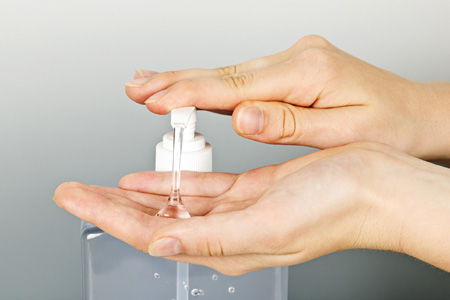In September 2016, the US Food and Drug Administration (FDA) announced that it was prohibiting controversial chemicals in products of day-to-day use. After evaluating the issue for more than 35 years, the FDA came up with a list of controversial chemicals, which include triclosan, triclocarban, and 17 other chemical ingredients that are used in everything from hand soaps to toothpaste. The rule applies only to consumer antiseptic wash products, and does not affect consumer toothpaste, hand sanitizers or wipes, or other antibacterial products used in health care settings. A court order as a result of a lawsuit and consumer pressure forced the release of this rule.
According to the FDA’s rule, companies will have to discontinue to market antibacterial washes with the controversial ingredients because manufacturers failed to demonstrate that (1) the ingredients were safe for long-term daily use; and (2) more effective than water and plain soap in preventing illness and certain infections. Some manufacturers of antibacterial washes have started removing these ingredients from their products. Though the products used in the healthcare sector remain unaffected with FDA’s decision, the sector is a major consumer of formulations containing controversial compounds.
What are Controversial Chemicals?
The chemicals produced in high volume are of serious concern and need to be eliminated as they are a threat for humans and the environment. These chemicals include:
- Benzalkonium chloride
- Benzethonium chloride
- Cloflucarban
- Chloroxylenol
- Hexachlorophene
- Hexylresorcinol
- Iodophors (Iodine-containing ingredients)
- Iodine complex (ammonium ether sulfate and polyoxyethylene sorbitan monolaurate)
- Nonylphenoxypoly (ethyleneoxy) ethanoliodine
- Poloxamer—iodine complex
- Povidone-iodine 5 to 10 percent
- Undecoylium chloride iodine complex
- Metheylbenzethonium chloride
- Phenol (greater than 1.5 percent)
- Phenol (less than 1.5 percent)
- Secondary amyltricresols
- Sodium oxychlorosene
- Tribromsalan
- Triclocarban
- Triclosan
- Triple dye
Before the FDA’s action on consumer products, some important health care professional associations recommended moving away from triclosan in the health care setting. Triclosan and triclocarban are the most commonly used antimicrobials in consumer products. Triclosan has been added to hand soaps and gels, touch surfaces, toothpaste, mouthwashes, kitchen items, lunch boxes, plastics, toys, and clothing. Studies show that bacteria has both natural and acquired mechanisms of triclosan resistance. Some studies also show that if bacteria becomes resistant to triclosan, it can also become resistant to other antibiotics. Triclocarban is also widely used, detectable in many streams and rivers, environmentally persistent, and tends to bioaccumulate in invertebrates. It shares many toxic properties with triclosan, including hormonal effects.
Compliance Timeline
Under the new FDA ban, starting September 2017, hand soaps and body washes will not contain triclosan, triclocarban, or any of 17 other controversial chemicals with germ-killing properties. Manufacturers only have a little time left on their hands to either reformulate their products or completely remove them from the market.
For now, the manufacturers have a year’s time to get these ingredients removed from their products and comply with the new guidelines by the FDA. Until then, these products cannot be marketed and have to be recalled or reformulated to abide by the new law. Though the guideline focusses on patient safety, the ban on these ingredients might increase reformulation efforts of manufacturers and the restrictions to market these products might overburden companies with increased costs.
In the meantime, use of normal soap is still a great defense against infection. Though the classic combination of plain soap and water does not kill germs, it mechanically removes them from your hands—with a bit of applied chemistry principles. Thus, it will be a smart strategy to concentrate on keeping bacteria and viruses off things rather than focusing on killing them all.
For more information on the recent FDA action on antiseptic wash products and its impact on the industry, attend this Webinar by expert speaker Norma Skolnik, who has over 35 years of regulatory experience working with the pharmaceutical and dietary supplement industries. Also, you’ll learn what companies can do to comply with FDA requirements for those active ingredients still allowed to remain on the market and ensure that they remain marketable in the U.S.

